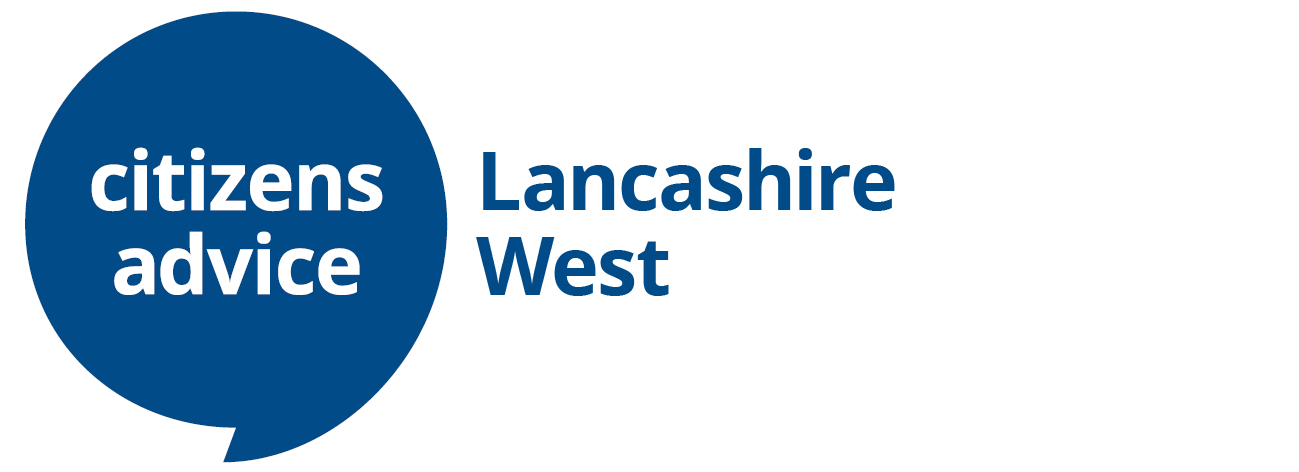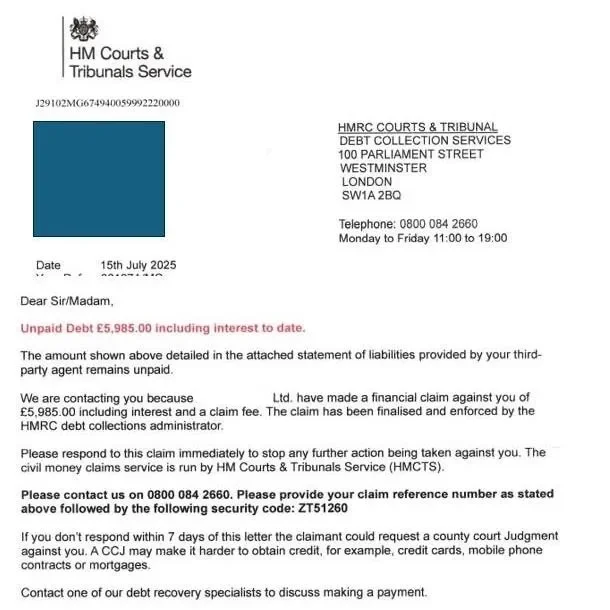Debt Collection Scams: Fake Letters and Threatening Calls on the Rise
Scammers Targeting People With Fake Debt Demands
Scammers are circulating letters and calls claiming you have unpaid debts, pressuring people to hand over cash and personal details quickly.
In recent weeks, there has been a sharp rise in reports of fraudulent debt collection letters claiming to come from HM Courts & Tribunals Service (HMCTS), the government agency that manages courts and tribunals in England and Wales. Alongside these, people are also reporting cold calls that claim to “help with debts.”
These scams are designed to frighten people into paying money they do not owe, or to hand over sensitive information.
What the Scam Letters Look Like
Which? has seen one of these fraudulent letters. It claimed that the recipient owed £5,985 including interest to a financial firm.
The letter instructed them to call a telephone number “to avoid any further action being taken.” But calling that number connects you directly to a fraudster attempting to steal your money and data.
Worryingly, the letter also warned that if no response was received within seven days, a county court judgment (CCJ) could be made against the recipient, which could damage their credit file.
Reports suggest the scammers even claimed to be from the Financial Ombudsman Service (FOS) in some cases. One victim was asked to put money into an envelope and post it.
Scam Calls on the Rise
It’s not just letters – there are growing reports of debt management scam calls.
Some callers impersonate Citizens Advice or claim to be from debt advice companies.
Others use the name “Debt Solutions” to sound legitimate.
In other cases, fraudsters try to sell products they say will help you pay off debts, or pretend to assist with tax and loan repayments.
Databases like Who Called Me? show many examples of these dodgy calls.
How to Check if a Debt Is Genuine
Debt demands are designed to alarm you, which makes them effective for scammers. But before you pay anything, always verify first:
✅ Contact the organisation directly using the official number on its website.
✅ If it claims to be HMCTS, call your local county court to confirm.
✅ Look up suspicious phone numbers on Who Called Me?.
✅ Check that any financial firm is registered on the Financial Conduct Authority (FCA) register. If it’s not, avoid it.
Remember: if you’re unsure about a demand, don’t pay it until you’ve verified it.
How to Report Debt Collection Scams
If you suspect you’ve received a scam letter or call:
Report suspicious letters to Royal Mail.
Report scam calls by texting 7726 (“spam” on a keypad). iPhone users text
callfollowed by the scam number to 7726. Android users textcallto 7726 and then reply with the scam number.On WhatsApp, open the chat, tap Report Contact and then Block.
If you lose money, call your bank immediately on the number printed on the back of your card.
You should also report the scam to Action Fraud, or to the police on 101 if you’re in Scotland.
Stay Alert – Don’t Be Pressured
These scams rely on fear and urgency. By staying calm, verifying information, and reporting suspicious activity, you can protect yourself and help stop others from falling victim.
⚠️ Remember: Genuine debt collection agencies and government bodies will never ask you to send cash in an envelope or pressure you into immediate payment.


